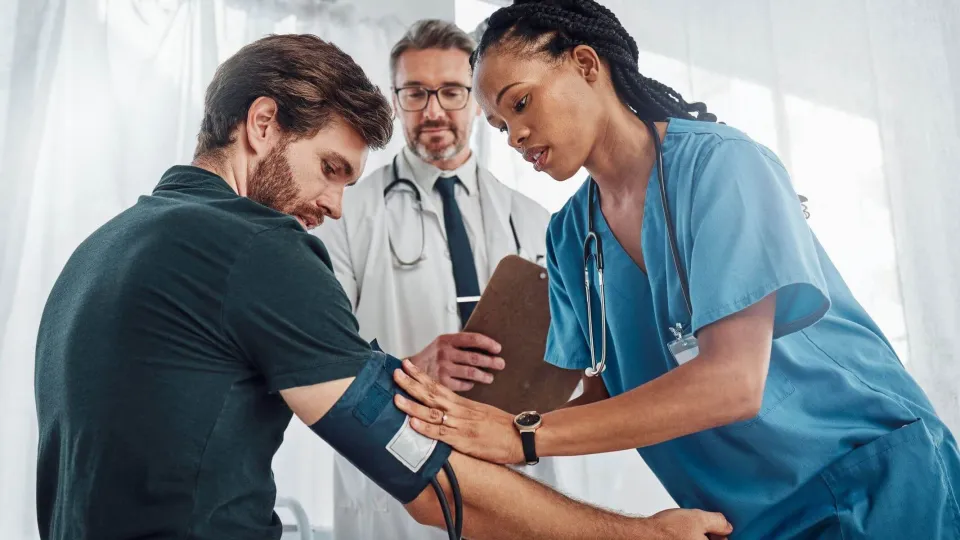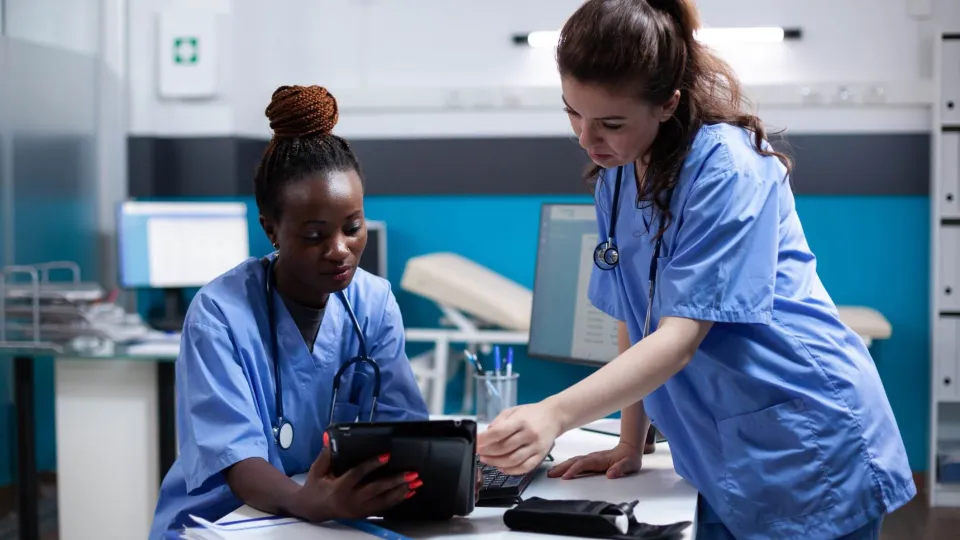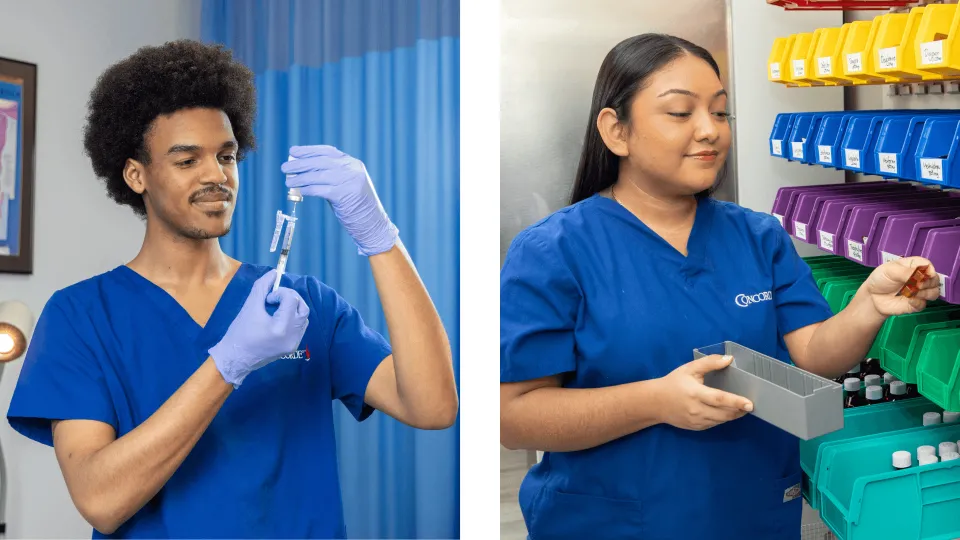
Technology has changed the ways we do things in many facets of our lives. It's even more true in health care. Nowhere is this more true in health care than in the day-to-day life of a medical assistant (MA).
Advancements in technology have changed everything from how medical assistants check in patients to how they take a patient's temperature. Anything from taking blood pressure to recording a patient's medical history has changed to adapt to new innovations.
We always want our Concorde students and alumni to be fully kept up to date on how much things have changed, so we picked the brains of a couple of our resident MA programs directors to get their takes on how technology is changing the world of Medical Assistants.
How technology is changing the world of Medical Assistants
Medical Assistants are primarily trained in two basic areas - administrative and clinical - according to Shawn Molnar, Director of Concorde Medical Assistant Programs in Oregon at the Portland Campus. Administrative training included basic office skills, the pegboard system and training on typewriters. Clinical training included anatomy and physiology, vital signs, clinical procedures, venipuncture, injections, and lab procedures.
MA programs began to include training on computers with the development of desktop computers and advanced technology. This new component included electronic medical records, medical billing software programs, and improved insurance claims processing.
"By including training on computers, medical assistants greatly increased their value to employers, and the training opened up more job opportunities in many different areas of health care," Molnar said.
Molnar added that computers and other electronic technology led to improved and more precise medical equipment and diagnostic machines. Medical Assistants are trained on many of these devices which can result in these medical professionals obtaining highly specialized positions and increased wages.
Medical Assistants applying technical skills to improve their careers
LaWandra Ellzey, Director of Concorde Medical Assistant Programs in Mississippi at the Southaven Campus, said today's technology has allowed Medical Assistants to become more computer savvy and apply all their administrative skills. She said it saves time in accessing information, recalling test results, scheduling appointments, etc.
"This will eliminate time spent with decision making for patients' treatments as well," Ellzey said. "It has allowed information to travel and be retrieved a lot faster than ever before. Everything is there, and the only fear now is really how effective can one be now being privy to so much information about a patient that HIPPA (privacy) compliance may have gone out the door."
Ellzey said technology now allows Medical Assistants to run and operate any facility from the front desk.
"Billing and coding, scheduling, triaging, facilitating meds, scheduling specialty tests, labs, chest X-rays, developing X-rays and much more...," she said. "Because of having access to portable laptops, they have this and so much more information at their fingertips."
There's no denying, changing technology greatly changed medical assistant duties and responsibilities, ensuring that things move much faster but more efficiently.
Take The Next Step Towards a Brighter Future
Interested in learning more about our Medical Assistant program?
We have a Concorde representative ready to talk about what matters most to you. Get answers about start dates, curriculum, financial aid, scholarships and more!







